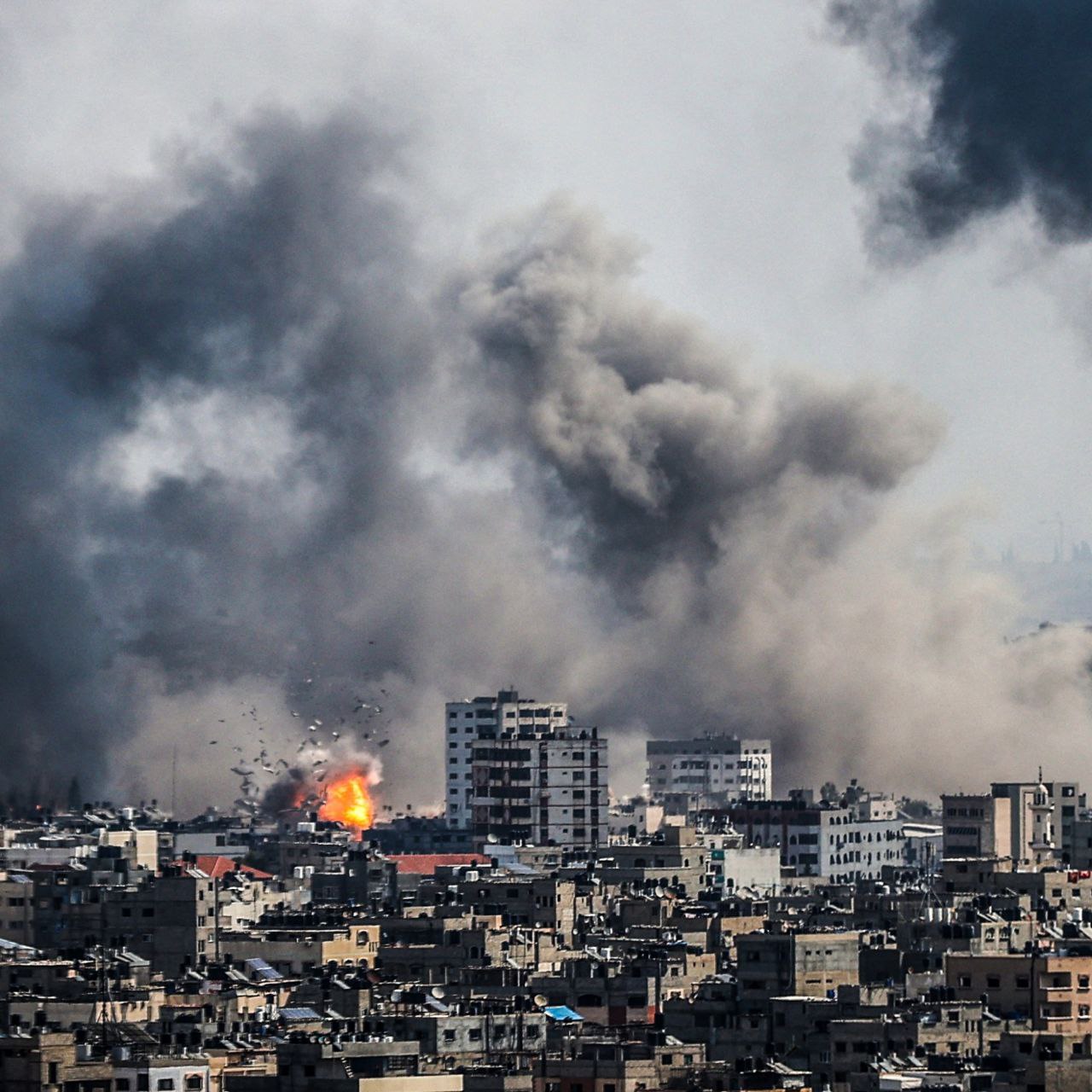𝐒𝐢𝐥𝐞𝐧𝐜𝐢𝐧𝐠 𝐆𝐚𝐳𝐚 𝐒𝐨𝐥𝐢𝐝𝐚𝐫𝐢𝐭𝐲 𝐨𝐧 𝐔.𝐒. 𝐂𝐨𝐥𝐥𝐞𝐠𝐞 𝐂𝐚𝐦𝐩𝐮𝐬𝐞𝐬 𝐌𝐢𝐫𝐫𝐨𝐫𝐬 𝐁𝐫𝐨𝐚𝐝𝐞𝐫 𝐑𝐞𝐩𝐫𝐞𝐬𝐬𝐢𝐯𝐞 𝐓𝐫𝐞𝐧𝐝𝐬

𝐒𝐢𝐥𝐞𝐧𝐜𝐢𝐧𝐠 𝐆𝐚𝐳𝐚 𝐒𝐨𝐥𝐢𝐝𝐚𝐫𝐢𝐭𝐲 𝐨𝐧 𝐔.𝐒. 𝐂𝐨𝐥𝐥𝐞𝐠𝐞 𝐂𝐚𝐦𝐩𝐮𝐬𝐞𝐬 𝐌𝐢𝐫𝐫𝐨𝐫𝐬 𝐁𝐫𝐨𝐚𝐝𝐞𝐫 𝐑𝐞𝐩𝐫𝐞𝐬𝐬𝐢𝐯𝐞 𝐓𝐫𝐞𝐧𝐝𝐬
ALKOFIYA
The systematic silencing of voices that denounce Israel’s actions in Gaza is being recognized as a profound assault on the principles of free expression and intellectual integrity, eroding the foundations of institutions that claim to uphold democratic values. Over the past year, prominent universities, including Columbia and New York University, have been criticized for conflating legitimate critiques of Israel’s actions and the ideology of Zionism with anti-Semitism—an alarming distortion that is seen as criminalizing dissent and delegitimizing calls for justice.
The response to peaceful protests against Israel’s ongoing actions and illegal occupation of Palestine has been characterized by draconian measures: arrests, expulsions, and institutional threats have been employed to suppress any semblance of opposition.
“It is far more than a series of administrative measures by selected universities,” stated Dimitri Diliani, spokesperson for Fateh’s Reformist Democratic Faction. “An orchestrated and well-resourced campaign has been aimed at dismantling and silencing the Palestinian narrative in academia—precisely the realm where truth, justice, and freedom of speech should prevail. By suppressing dissent, these institutions are not merely failing in their moral and intellectual mandates; they are willfully aligning themselves with complicity, sacrificing integrity and courage for political expediency.”
Historically, American universities have not been strangers to the crushing of grassroots protest. During the Vietnam War era, peaceful sit-ins and anti-war demonstrations were met with police violence. The tragic killings at Kent State and Jackson State Universities in May 1970 underscored the lengths to which authorities were willing to go to stifle dissent. More than half a century later, authoritarian tactics are again being deployed to target students and faculty advocating for Palestinian national rights.
The parallels are stark. The American university, once a symbol of resistance during the Civil Rights Movement, is now seen as mirroring the corporate-driven ethos of the American administration. “When campuses become extensions of a state apparatus that prioritizes order over justice, their purpose is betrayed,” Diliani asserted. “They are no longer spaces of enlightenment but tools of repression designed to uphold power structures that perpetuate genocide, ethnic cleansing, and apartheid.”
The intensification of institutional repression is occurring at a time when an unprecedented surge of student activism has revealed the deep entanglement of governments and corporations in Israel’s violations of international law. Recent statistics highlight the alarming scale of this suppression: more than 30 universities across the United States have taken punitive measures—ranging from suspensions to expulsions—against students advocating against Israel’s actions and in solidarity with Palestine, while faculty members who voiced support for Palestinian human rights faced legal reprisals. This troubling trend reflects a coordinated effort to stifle dissent and insulate complicity from accountability.
“Free speech is only meaningful when it applies universally,” Diliani concluded. “To suppress the call for justice in Palestine is to suppress the essence of freedom itself. The battle for Palestinian rights is not confined to Gaza or the West Bank; it is waged in classrooms and campuses around the world. And it is in these spaces that resistance to attempts to silence truth must continue.”
The repression witnessed today should alarm all who value freedom and human rights. When spaces meant to challenge oppression become complicit, the consequences reverberate far beyond their walls, perpetuating systems of injustice globally.
PALYOUTH . j.R



